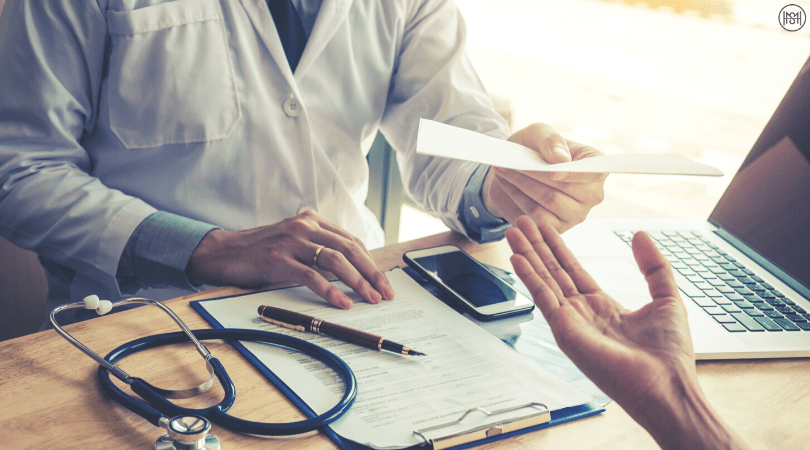Getting a medical examination after a minor car accident can benefit you in many ways. It can protect your health and increase the compensation you receive for your losses.
At McCoy & Hiestand, our car accident lawyers in Louisville have over 58 years of combined experience. Read on to learn more about why you should visit the doctor after a minor car accident.
When Should You Schedule an Appointment?
It’s best to schedule a medical evaluation as soon as possible after a minor car accident, such as a parking lot accident, even if your injuries feel minor initially or if you don’t have serious pain. Doctors generally recommend making an appointment with your doctor within a day or two of the collision.
There are a few key reasons for seeking medical attention promptly:
- Doctors will perform diagnostic tests, get imaging if needed, and evaluate your condition before pre-existing factors complicate the picture. This makes determining accident-related injuries more clear-cut.
- Establishing care sooner allows for better monitoring of your recovery over time. Doctors can follow up if new symptoms emerge down the line.
- Prompt attention supports any future insurance claims by documenting your condition and treatment plan as close to the accident date as possible.
So don’t put off an evaluation if you’ve been involved in even a minor fender-bender.
To Diagnose Your Injuries and Get Proper Medical Treatment
Even after a minor accident, there is a chance that you can still suffer injuries. Here are some of the most common injuries that you may not notice after a minor car accident that could impact your health:
Whiplash
Whiplash is a neck injury caused by sudden back-and-forth motion, like in a rear-end collision. Even low-impact crashes can cause whiplash, which initially presents as pain, stiffness, and tenderness in the neck.
While these symptoms may feel minor at first, whiplash gets progressively worse over time as muscles spasm and inflame. Many people do not experience the worst whiplash pain until 1-2 days after the accident, as the neck tissues continue to swell. Other signs include headaches, shoulder blades, difficulty sleeping, and limited range of motion turning the neck.
Whiplash can take weeks or months to fully recover from if not properly treated with rest, heat and cold therapy, exercises, and potentially physical therapy.
Concussion
A concussion is a traumatic brain injury that results from a blow or jolt to the head, such as when the head snaps forward and hits the steering wheel during a crash. Concussions are sometimes referred to as an “invisible injury” because symptoms are functional changes in the brain rather than outward physical damage.
Not all concussions cause loss of consciousness; in fact, most do not. Common signs that emerge over subsequent hours or days include headache, dizziness, sensitivity to light and noise, difficulty concentrating, insomnia, irritability, and fogginess.
As a brain injury, concussions require proper cognitive and physical rest for recovery and may have lasting impacts if not correctly managed.
Back or Spine Injury
The lower back is vulnerable to strains, bulges, or herniated discs, even in seemingly minor rear-end crashes when the torso lurches forward and back rapidly. Initial back discomfort or tightness may subside within hours or days only to return worse, radiating pain down the buttocks and backs of legs.
This is due to swelling of nerves in the lumbar spine. Pre-existing back conditions like arthritis or old muscle and ligament strains are also easily re-aggravated. Without proper stabilization and stretching, such injuries can devolve into chronic issues with tingling, numbness, and impaired mobility long-term.
Of course, there are many other injuries that may not be obvious. If you suspect that you have a different injury, you should meet with your doctor as soon as you can.
Do You Need to Establish a Medical Record for Your Insurance Claim?
If you’re planning to file an insurance claim for injuries you sustained in a car accident, it’s important to visit your doctor and start building a medical record right away. Insurance companies will want to see documentation from a medical professional to evaluate the extent of your injuries and proper treatment.
By scheduling an exam with your primary care physician or visiting an urgent care clinic soon after the accident, you can:
- Have any injuries or pain officially diagnosed and recorded? Technical, medical terms and findings carry more weight with claims adjusters than self-diagnosed issues.
- Use evidence to establish a timeline for when symptoms developed in relation to the crash date. This helps prove the injuries are accident-related.
- Obtain notes detailing recommended care plans, like medications, therapy, and work restrictions, to support claims for lost wages or ongoing treatment costs.
- Create files that can be easily submitted to insurance with information on treatment, progress, and prognosis over the weeks and months following the incident.
Seeking prompt medical attention demonstrates to insurance companies that you are making efforts to properly care for any injuries and aids them in fairly assessing liability and approving reasonable claims in a timely manner. It’s an important step to take, even for minor impacts.
Learn More Reasons You Should Visit the Doctor After a Minor Accident
At McCoy & Hiestand, our team of Louisville car accident attorneys is ready to help you recover compensation after you’ve suffered injuries. We can help you build a strong case.
Contact us to learn more about why you should visit a doctor after a minor car accident.

Free Consultation
Thank you for your interest!
We are here to help
Fill out the form below to request a consultation